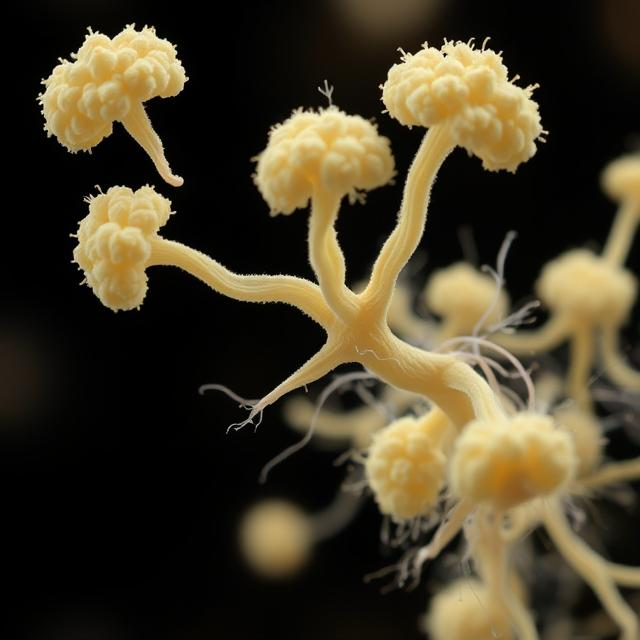The world of biopharma is experiencing a revolution, and at its core is precision fermentation—a technology that has evolved from its historical use in beer brewing and biofuel production to a sophisticated tool for manufacturing pharmaceuticals, biologics, and alternative proteins. With the precision fermentation market projected to reach $34.9 billion by 2031, companies like Change Foods, Eden Brew, and Impossible Foods are leading the way in transforming how we produce critical biomolecules. But beyond food tech, precision fermentation is shaping the future of medicine by enabling the production of therapeutic proteins, enzymes, and novel drug formulations.
How Precision Fermentation is Transforming Pharma

The biotech industry has long relied on microbial fermentation for the production of biologics, particularly through yeast strains such as Saccharomyces cerevisiae. This model eukaryotic organism is not only easy to manipulate and culture but also shares key structural similarities with human cells, making it ideal for protein synthesis, enzyme production, and drug development.
One of the most promising applications of precision fermentation is in the manufacture of therapeutic proteins and enzymes. By engineering yeast cells, scientists can efficiently produce monoclonal antibodies, insulin, and clotting factors, eliminating the need for traditional mammalian cell cultures. This not only reduces production costs but also enhances scalability and sustainability.
- Biologics & Enzyme Production: Advanced yeast strains can be programmed to produce pharmaceutical-grade proteins, reducing dependence on animal-derived components.
- Scalability & Sustainability: Compared to traditional biopharma manufacturing, precision fermentation offers a more sustainable approach with higher yields and reduced environmental impact.
Engineering Yeast for Precision Fermentation: The Science Behind It
Anaerobic yeast fermentation has long been used in industrial applications, from ethanol production to enzyme manufacturing. For instance, in a 7.5-liter BioFlo 310 fermentor, researchers demonstrated how redox potential could be controlled to optimize ethanol production in S. cerevisiae. By first growing yeast in an aerobic environment, they achieved high cell density. Then, by pumping nitrogen gas to induce anaerobic conditions, they activated ethanol production, measuring redox potential to ensure optimal metabolic conditions.
The same principles apply to precision fermentation in pharma. Using advanced fermentors and genetic engineering, scientists can optimize yeast metabolism for targeted protein synthesis. Redox potential measurements and dissolved oxygen monitoring help regulate fermentation efficiency, ensuring consistent, high-purity production of biologic drugs.
Beyond Pharma: The Broader Market for Precision Fermentation
The applications of precision fermentation extend beyond pharmaceuticals into food technology, cosmetics, and industrial enzymes. Companies like Impossible Foods and Change Foods are using engineered yeast to produce animal-free proteins, while others are developing fermentation-derived collagen, vitamins, and probiotics.
The food industry has already embraced probiotic fermentation, using bacterial and yeast cultures to produce gut-friendly foods like yogurt, kefir, and kombucha. These live microorganisms contribute to human health, much like engineered yeast contributes to precision medicine.
- Alternative Proteins: Precision fermentation is replacing traditional animal agriculture in protein production, offering a more ethical and sustainable solution.
- Neurodegenerative Disease Research: New antibody platforms are being developed to target protein aggregation disorders, such as Alzheimer’s and Parkinson’s disease, leveraging fermentation-driven antibody production.
Future Outlook: What’s Next for Precision Fermentation?
As biopharma embraces AI-driven process optimization, the potential for precision fermentation will continue to expand. Emerging technologies will allow for greater control over metabolic pathways, enabling yeast cells to produce even more complex molecules for therapeutic applications.
- Gene Editing & Synthetic Biology: Advances in CRISPR and other gene-editing tools will make precision fermentation even more powerful, unlocking new possibilities in drug discovery.
- Industrial-Scale Production: As the market continues to grow, next-generation bioreactors will increase efficiency, reducing production timelines for key pharmaceuticals.
Conclusion: The Revolution Has Begun
Precision fermentation is no longer just a concept—it’s a market-driving force poised to reshape biopharma, food, and medicine. From producing life-saving biologics to sustainable food alternatives, this technology represents a paradigm shift in how we manufacture proteins, enzymes, and therapeutics. The only question left is: How fast will the industry adapt?
